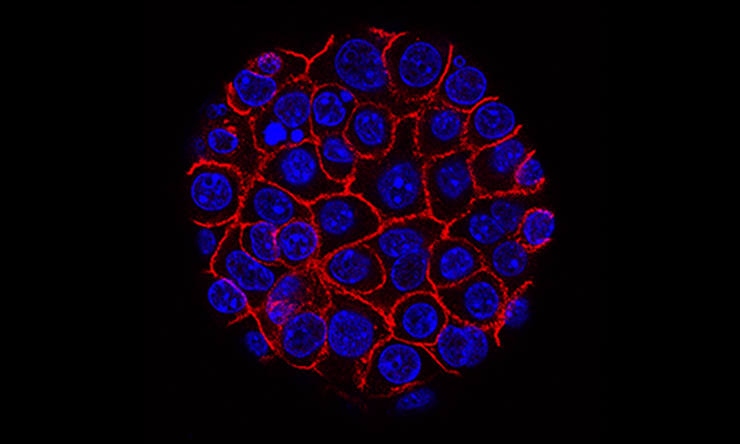Baylor College of Medicine recruiting volunteers for pancreatic cancer clinical trial
Researchers in the Michael E. DeBakey Department of Surgery and Dan L Duncan Comprehensive Cancer Center at Baylor College of Medicine are recruiting volunteers for a clinical trial to study the effectiveness of a combination therapy for patients with pancreatic adenocarcinoma. Patients with early-stage pancreatic cancer and who have had no prior chemotherapy or radiation may be eligible for the study.
“New approaches to pancreatic cancer are needed,” said Dr. E. Ramsay Camp, professor and chief of surgical oncology in the Division of Surgical Oncology at Baylor. “This clinical trial will combine chemotherapy with immunotherapy before pancreatic cancer surgery. The hope is that by treating the tumor first, we will more effectively activate the patient’s own immune system to provide lasting defense against the cancer. We are very excited to apply this therapy strategy before surgery and hopefully attack the disease at an early stage.”
The researchers are using a unique combination of immune checkpoint therapy and chemotherapy. Immune checkpoint therapy is a type of immunotherapy that targets regulatory pathways in T cells to enhance anti-tumor immune response. While it is effective against many other cancers, it has not been shown to be effective for treating pancreatic cancer on its own.
Recently, studies for other cancers, such as lung and breast cancer, have shown that a combination of immune checkpoint therapy administered alongside cytotoxic chemotherapy results in a more promising response than with either treatment alone. Additionally, strong evidence has shown that immunotherapy in the neoadjuvant setting (before surgery) can have a much more potent effect than if given after surgery. It is suspected that immune cells residing in the tumor are already fighting the cancer and can be further strengthened by immunotherapy. Baylor researchers are hoping to apply this same theory to this pancreatic cancer trial.
The study, which is funded by Merck, will consist of providing chemotherapy with immunotherapy to patients who have pancreatic cancer and are candidates for surgery.
Patients interested in enrolling or learning more can call 713-798-3956.







 Credit
Credit


